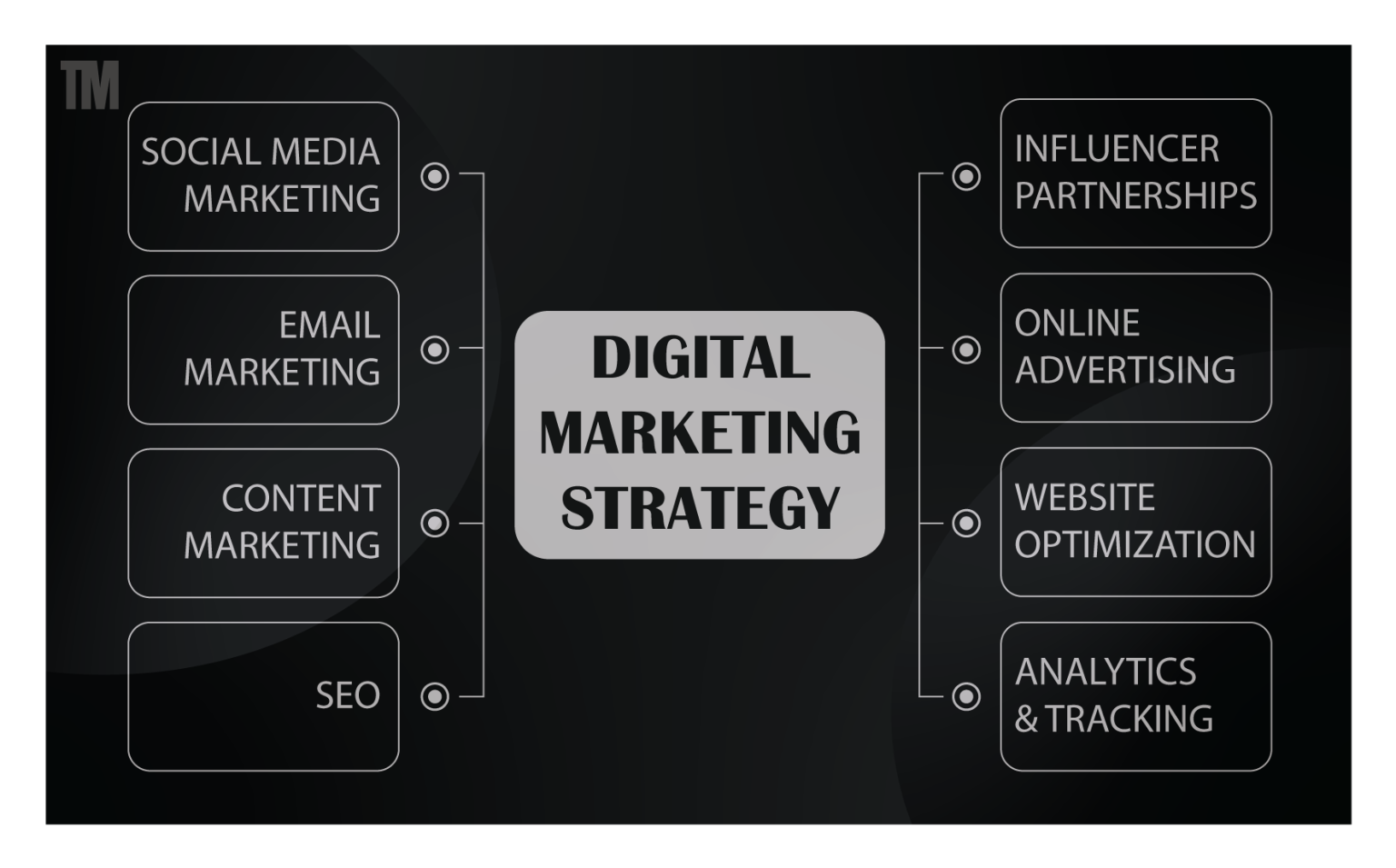Data & Design Duos: How Digital Marketing Can Supercharge Your Fashion Business
In the changing fashion world, having a unique design is not sufficient due to trends and competition. Today’s successful fashion brands must cultivate a strong online presence to thrive.

Imagine Sophia, a fashion designer, wanting to expand her business with Alex, a digital marketer. They work together to grow her brand.
Sophia is a talented fashion designer who specializes in creating sustainable and ethically sourced clothing. She has a pretty online shop, but she’s having trouble getting enough people to visit and buy things. This is where Alex, a skilled digital marketer, comes into play.
- Social Media Marketing: Alex studies Sophia’s audience and sees they are eco-friendly people aged 25-40 who use Instagram and Pinterest. He crafts visually appealing content highlighting Sophia’s sustainable fashion ethos and runs targeted ads on these platforms. By using hashtags, captions, and visuals, they get more followers and bring more people to Sophia’s online store.
- Search Engine Optimization (SEO): Alex conducts keyword research and optimizes Sophia’s website with relevant keywords like “sustainable fashion,” “ethical clothing,” and “eco-friendly apparel.” They make changes to the site’s meta tags, headings, and product descriptions to improve its visibility on search engines. This attracts more users who are interested in sustainable fashion. This brings in more users looking for sustainable fashion.
- Email Marketing: Alex assists Sophia in building an email list by giving a discount to people who sign up for her newsletter. Alex helps Sophia create an email list by offering a discount to those who sign up for her newsletter. They send out newsletters regularly. The newsletters include updates on new collections, fashion tips, and special discounts. This helps attract new customers and encourage repeat purchases. By analyzing open rates and click-through rates, they refine their email content for maximum engagement.
- Content Marketing: Alex suggests that Sophia should create blog posts and videos. She should focus on showcasing her creations made with eco-friendly materials. Additionally, she should provide advice on sustainable fashion. Sophia brings more people to her website and becomes a respected figure sustainably. She achieves this by sharing valuable content on social media and through email newsletters.
- Influencer Partnerships: Alex identifies influencers and bloggers in the sustainability and fashion niche whose values align with Sophia’s brand. They reach out to these influencers to collaborate on sponsored content featuring Sophia’s clothing line. By leveraging the influencers’ reach and credibility, they expose Sophia’s brand to a wider audience and drive sales.
- Online Advertising: Alex creates targeted ad campaigns on platforms like Facebook and Google to reach Sophia’s ideal customers. They show ads to people who visited Sophia’s website but didn’t buy anything using demographic targeting and retargeting strategies. They improve ad performance by using metrics such as click-through rate and conversion rate. This helps them maximize their ad budget.
- Website Optimization: Alex performs a comprehensive review of Sophia’s website utilizing instruments such as Google Analytics to pinpoint areas that need enhancement. They make the website easier to use, faster, and improve product information for a better shopping experience for users. By implementing A/B testing, they refine website elements to increase conversion rates and drive more sales.
- Analytics and Tracking: Alex looks at website visitors, sales rates, and cost of gaining customers to evaluate marketing effectiveness. Sophia receives detailed reports and insights.This helps her make smart decisions. It also helps her improve her digital marketing strategies. Ultimately, this allows her to reach her business goals.
By working together with Alex, Sophia’s business has grown significantly. Sophia’s business grew a lot after teaming up with Alex. Her website gets more visitors now, which has boosted sales. Additionally, she has a growing group of loyal customers who love her eco-friendly fashion brand. By leveraging the expertise of a digital marketer, Sophia is able to reach her target audience more effectively and establish her brand as a leader in the sustainable fashion industry.

Mastering Fashion: How Digital Marketing Can Amplify Your Online Course Success
A fashion designer can definitely create an online course to share their expertise and knowledge with aspiring designers or fashion enthusiasts. In fact, this can be a lucrative opportunity to diversify revenue streams and establish authority in the industry. Here’s how a digital marketer can assist in this endeavor:
Market Research: Digital marketers can conduct thorough market research to identify the target audience for the online course. This includes understanding their demographics, interests, pain points, and learning preferences.
Content Creation: While fashion designers an experts in their craft, digital marketers can assist in structuring the course content effectively. They can help organize the material into engaging modules, develop supporting resources such as downloadable guides or worksheets, and ensure the content aligns with the target audience’s needs.
Platform Selection: Digital marketers can advise on the best platform to host the online course, considering factors such as user experience, scalability, payment processing, and marketing integrations.
Branding and Promotion: Digital marketers can assist in branding the online course to reflect the designer’s aesthetic and values. They can develop promotional strategies to generate buzz and drive enrollment, leveraging channels like social media, email marketing, influencer partnerships, and online advertising.
Sales Funnel Optimization: Once the course is live, digital marketers can optimize the sales funnel to maximize conversions. This involves refining landing pages, implementing effective call-to-actions, and utilizing email sequences to nurture leads and encourage enrollment.
Analytics and Iteration: Digital marketers can track key metrics such as website traffic, conversion rates, and course engagement to measure success and identify areas for improvement. They can provide insights based on data analysis and help iterate on the marketing strategy to achieve better results over time.
By collaborating with a digital marketer, a fashion designer can effectively launch and promote an online course, reaching a wider audience and generating additional revenue while establishing themselves as an authority in the fashion industry.
In conclusion, the digital fashion landscape offers a vast and exciting opportunity for designers to showcase their work and connect with a global audience. By partnering with a skilled digital marketer, you can unlock the power of targeted advertising, captivating content creation, and data-driven insights. This strategic alliance can transform your brand from a local favorite to a thriving online destination, attracting new customers and solidifying your position in the ever-evolving world of fashion. So, don’t be afraid to embrace the digital revolution – with the right team by your side, you can turn your design dreams into a thriving online reality.
FAQs: Fashion Business and Digital Marketing
Why is digital marketing crucial for fashion businesses? Digital marketing offers fashion businesses a plethora of tools and strategies to expand their reach, engage with their target audience, and drive sales. With the majority of consumers now researching and purchasing products online, digital marketing provides a direct and effective way to connect with potential customers.
What are some key digital marketing channels for fashion businesses? Key digital marketing channels for fashion businesses include social media platforms like Instagram, Facebook, and Pinterest, as well as email marketing, search engine optimization (SEO), influencer partnerships, and online advertising.
How can social media benefit fashion businesses? Social media platforms provide fashion businesses with a visually-driven space to showcase their products, connect with their audience on a personal level, and build a loyal following. Through strategic content creation, engagement, and community-building efforts, social media can significantly amplify brand awareness and drive traffic to online stores.
What role does content marketing play in the fashion industry? Content marketing is essential for establishing a fashion brand’s identity, educating consumers about its values and offerings, and fostering trust and credibility. From blog posts and videos to behind-the-scenes glimpses and user-generated content, compelling storytelling can captivate audiences and differentiate a brand in a crowded market.
How can fashion designers benefit from creating online courses? Creating online courses allows fashion designers to share their expertise, connect with aspiring designers or fashion enthusiasts, and diversify their revenue streams. Through digital marketing strategies such as targeted advertising, email marketing, and influencer partnerships, designers can effectively promote their courses and reach a wider audience.
What are the key metrics to track in fashion business digital marketing campaigns? Key metrics to track in fashion business digital marketing campaigns include website traffic, engagement metrics (such as likes, shares, comments), conversion rates, customer acquisition cost (CAC), return on investment (ROI), and customer lifetime value (CLV). These metrics provide insights into the effectiveness of marketing efforts and help refine strategies for better results.







